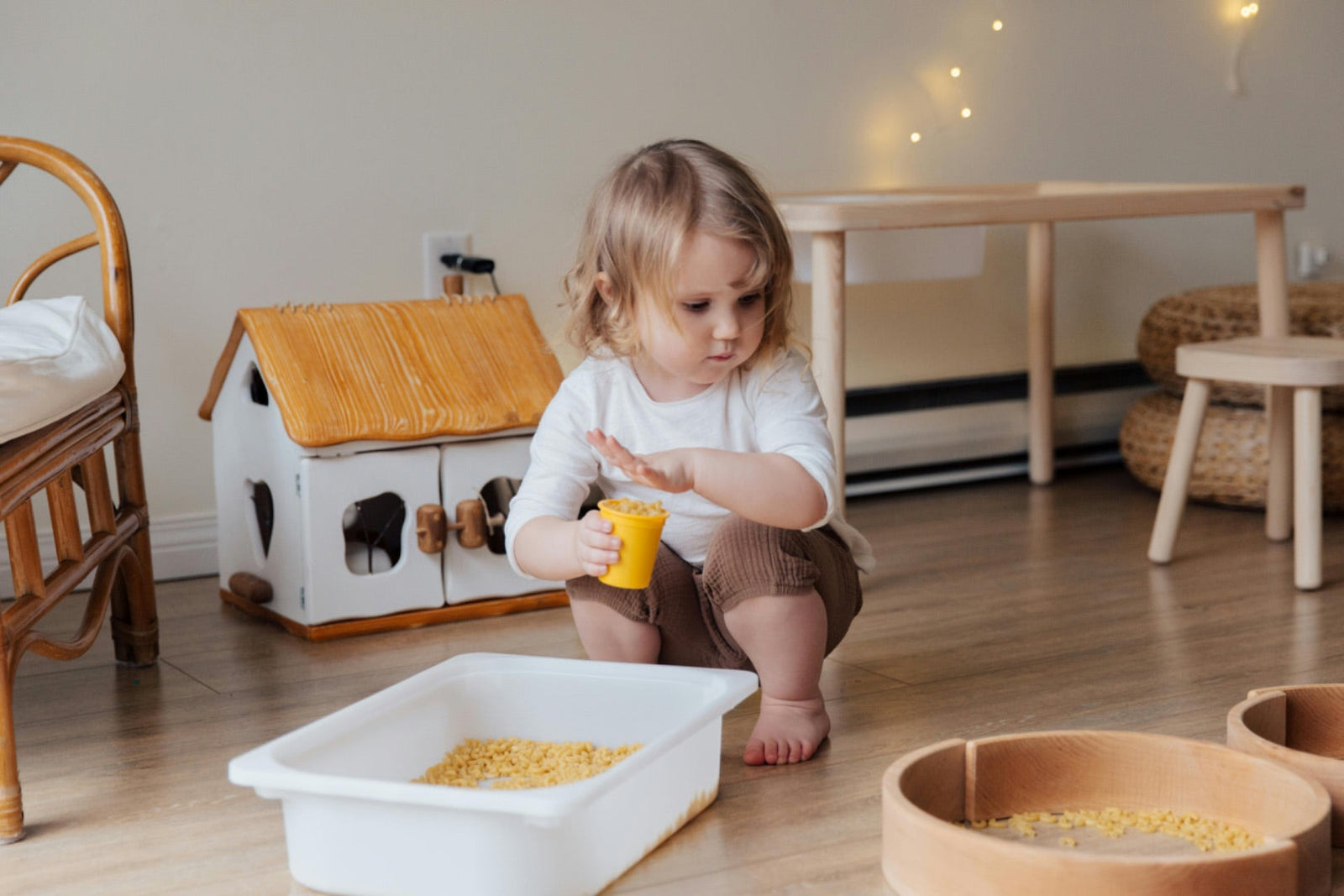Your Cart is Empty
Continue shoppingDo Pears Help with Constipation in Kids?
Medically Reviewed by May Zhu, RDN | Published May 29, 2024
share this article

Constipation is a common concern among kids, often leading to discomfort and frustration for both little ones and their parents. While over-the-counter remedies are available, many parents prefer natural solutions to alleviate constipation in their kiddos. Pears have been recognized for their potential to promote digestive health, but do they truly help with constipation? In this blog, we’ll review the scientific research behind pears and their effectiveness in relieving constipation in kids.
What Causes Constipation in Kids?
Constipation in kids can be caused by various factors, including a low-fiber diet, inadequate fluid intake, and lack of physical activity. Symptoms typically include infrequent bowel movements, hard stools, and difficulty passing stools. Incorporating fiber-rich foods like pears into a kid's diet can help address these symptoms naturally.
Daily reads to help your little ones lead happier and healthier lives.
Buy Now
Join the
Happy Gut Club
The Nutritional Benefits of Pears
Pears are not only delicious but also packed with essential nutrients that support digestive health. They are rich in dietary fiber, vitamins, minerals, and antioxidants, making them an excellent choice for promoting regular bowel movements.
-
Fiber Content: Pears are particularly high in soluble fiber, which adds bulk to the stool and helps regulate bowel movements. According to theJournal of Clinical Gastroenterology, increasing fiber intake is associated with improved stool frequency and consistency in constipated individuals [1]. One medium-sized pear provides about 6 grams of fiber, which is approximately 24% of the daily fiber requirement for kids.
-
Sorbitol: Pears contain sorbitol, a natural sugar alcohol with mild laxative properties. Sorbitol draws water into the intestines, softening the stool and promoting easier bowel movements. A study published inAlimentary Pharmacology & Therapeutics found that sorbitol-containing fruits like pears can help increase stool frequency and improve stool consistency in constipated individuals [2].
-
Hydration: Pears have a high water content, which helps keep the stool soft and prevents dehydration—a common contributor to constipation. TheAmerican Journal of Clinical Nutrition emphasizes the importance of hydration in maintaining regular bowel movements and preventing constipation [3]. Including hydrating fruits like pears in a kid's diet can support overall digestive health.
-
Antioxidants: Pears are rich in antioxidants, which help reduce inflammation in the digestive tract and support gut health. Research in theJournal of Nutrition and Metabolism suggests that antioxidants play a crucial role in maintaining gastrointestinal health and preventing digestive disorders, including constipation [4].
-
Gut Microbiota: Pears contain prebiotic fibers that nourish beneficial gut bacteria, contributing to a healthy gut microbiota. A study inNutrients demonstrated that prebiotic-rich foods like pears promote the growth of beneficial bacteria, which in turn improves digestive function and reduces constipation symptoms [5].
How to Incorporate Pears into Kids' Diets
Introducing pears into a kid's diet can be enjoyable and straightforward:
-
Fresh Fruit: Serve sliced pears as a snack or dessert.
-
Smoothies: Blend pears with other fruits and yogurt for a delicious and nutritious smoothie.
-
Salads: Add diced pears to green salads or fruit salads for added sweetness and fiber.
-
Baked Goods: Use pears in baking recipes such as muffins or cakes for a flavorful and fiber-rich treat.
Summary
Pears are an effective natural remedy for alleviating constipation in kids due to their high fiber content, sorbitol, hydration benefits, antioxidants, and prebiotic properties. Regular consumption of pears can promote healthier bowel movements and improve overall digestive health. By incorporating pears into their diet, parents can help their kiddos find relief from constipation naturally.

Author
May Zhu, RDN
Trending

Inc. Names Begin Health to Its 2025 List of the Fastest-Growing Private Companies in the Midwest
read now
Oxalates and Kids' Digestion: How High-Oxalate Foods Contribute to Constipation and Gut Discomfort
read now
5 Signs Your Toddler Needs a Poop Test
read now






